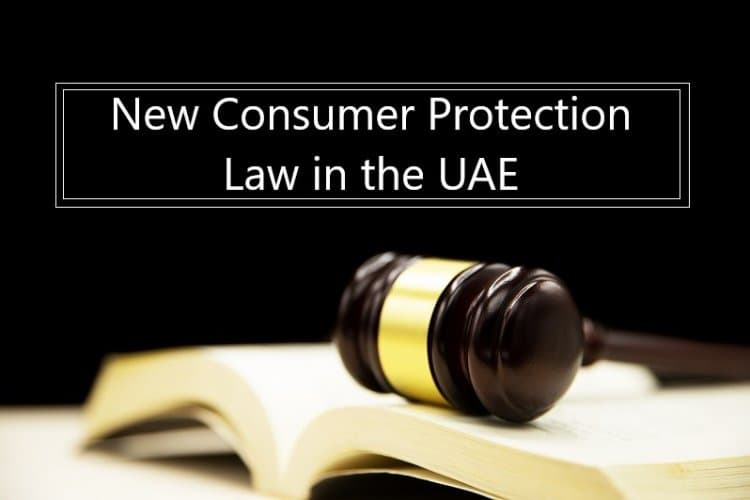
Consumer Rights Under The New Law in UAE
In this article, I will tell all of you about consumer rights under the new law in UAE. The United Arab Emirates has put in place specific legal provisions and designated entities to protect consumers’ rights. The United Arab Emirates has put in place specific legal provisions and designated entities to protect consumers’ rights. Learn more about consumer protection in the United Arab Emirates.
Laws pertaining to consumer protection
The Federal Law No. 15 of 2020 on Consumer Protection replaces the Federal Law No. 24 of 2006, which was in effect at the time of writing. The new law aims to protect all consumer rights, including the right to receive goods and services of standard quality and the right to obtain them at the price that has been specified in advance. It also seeks to protect the health and safety of the consumer while the goods or services are being used or received by the consumer. The law protects the personal information of consumers and prohibits suppliers from using it for promotional purposes. 1
The Scope of the law
The law applies to all goods and services sold or provided by suppliers, advertisers, and commercial agents on the UAE’s mainland and in free zones, regardless of where they are
located. It also applies to goods sold through e-commerce platforms that are registered in the United Arab Emirates. Meanwhile, the law does not apply to e-commerce activities that are carried out between customers in the United Arab Emirates and e-commerce businesses that are registered outside of the United Arab Emirates. 2
Rights of the consumer
Consumers in the United Arab Emirates are entitled to the following protections under UAE law:
To be provided with an appropriate and safe environment when purchasing a good or receiving a service to receive accurate information about the goods they purchase, use, or consume, or the service they receive to be informed of their rights and obligations to have the freedom to choose the most appropriate product and service available on the market in accordance with their wishes to obtain just compensation for damages they suffer as a result of purchasing or using defective goods or services to be informed of their rights and obligations
The supplier is required to:
Protect the privacy and security of consumers’ personal information, and refrain from using them for promotional and marketing purposes. When providing consumers with goods or services, it is important to consider their religious values, customs, and traditions.
Resolving disputes between consumers As soon as possible, the business should issue a dated invoice to the customer, which should include the business’s name and address as well as the type and price of the goods or services sold or provided, as well as any other information specified by the Executive Regulation of this law. The invoice must be written in Arabic, with the provider having the option to include additional languages if he so chooses.
The UAE requires e-commerce businesses to provide information about their licensing entity, product or service specifications, terms of contract, payment methods, warranty information, and other relevant data to consumers and government authorities in the country where the business is located. Any contract conditions that are detrimental to the consumer are prohibited and void under the law. This law also declares null and void any contract clause that would exempt the supplier from any of the obligations stipulated in this law. Suppliers who fail to provide clear information and labeling, or who advertise misleading prices and false data on the goods and services, or who fail to repair or replace a defective product
without charging, will face imprisonment for up to two years and a fine of not more than AED two million (about $2 million).
The Customer Happiness Charter for Federal Government Services seeks to ensure that customers are satisfied with federal government services, which are delivered with speed, professionalism, mutual respect, and transparency, among other qualities
CONCLUSION
With the broad scope of the law, as well as the severe penalties it imposes, the UAE will be at the forefront of countries that deal harshly with violations of consumer rights. Consumers continue to benefit from the deterrent penalties imposed by the law in order to prevent infringements from taking place. It is possible that the most interesting feature of this law was the inclusion of enforcement in free zone areas, which had not previously been explicitly provided for in law. Consumer data and privacy are now protected under the new Consumer Protection Law, which comes into effect on January 1, 2018. The possibility of forced disclosure by providers of information and documents has closed a gap that had previously been a source of consternation for law enforcement agencies and consumers alike, and it has opened the door to uncovering and disrupting the trade cycle of violating providers.
Finally, the severe penalties imposed by the New Law will deter many service providers from being careless in their dealings with their customers. The enactment of the New Law represents a significant step forward in the fight against the infringement of consumers' rights in the United Arab Emirates. The numerous changes and enactments that have been implemented are expected to be well received by law enforcement officials as well as by customers.
For any enquiries or information, contact info@thelawreporters.com